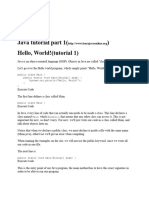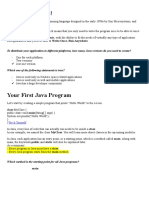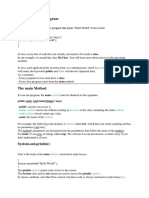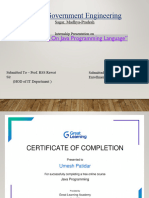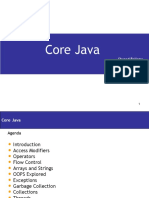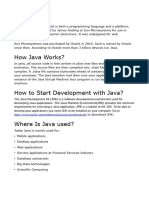0% found this document useful (0 votes)
13 views35 pagesJava Visual Introduction Full Presentation
This document serves as a beginner's guide to Java, highlighting its versatility, object-oriented nature, and widespread use in various applications. It introduces key components like JDK, JRE, and JVM, and provides a simple 'Hello, World!' program as a starting point. Additionally, it covers fundamental programming concepts such as data types, operators, and the importance of practice in learning Java.
Uploaded by
ucancatchjkCopyright
© © All Rights Reserved
We take content rights seriously. If you suspect this is your content, claim it here.
Available Formats
Download as PPTX, PDF, TXT or read online on Scribd
0% found this document useful (0 votes)
13 views35 pagesJava Visual Introduction Full Presentation
This document serves as a beginner's guide to Java, highlighting its versatility, object-oriented nature, and widespread use in various applications. It introduces key components like JDK, JRE, and JVM, and provides a simple 'Hello, World!' program as a starting point. Additionally, it covers fundamental programming concepts such as data types, operators, and the importance of practice in learning Java.
Uploaded by
ucancatchjkCopyright
© © All Rights Reserved
We take content rights seriously. If you suspect this is your content, claim it here.
Available Formats
Download as PPTX, PDF, TXT or read online on Scribd
/ 35





















